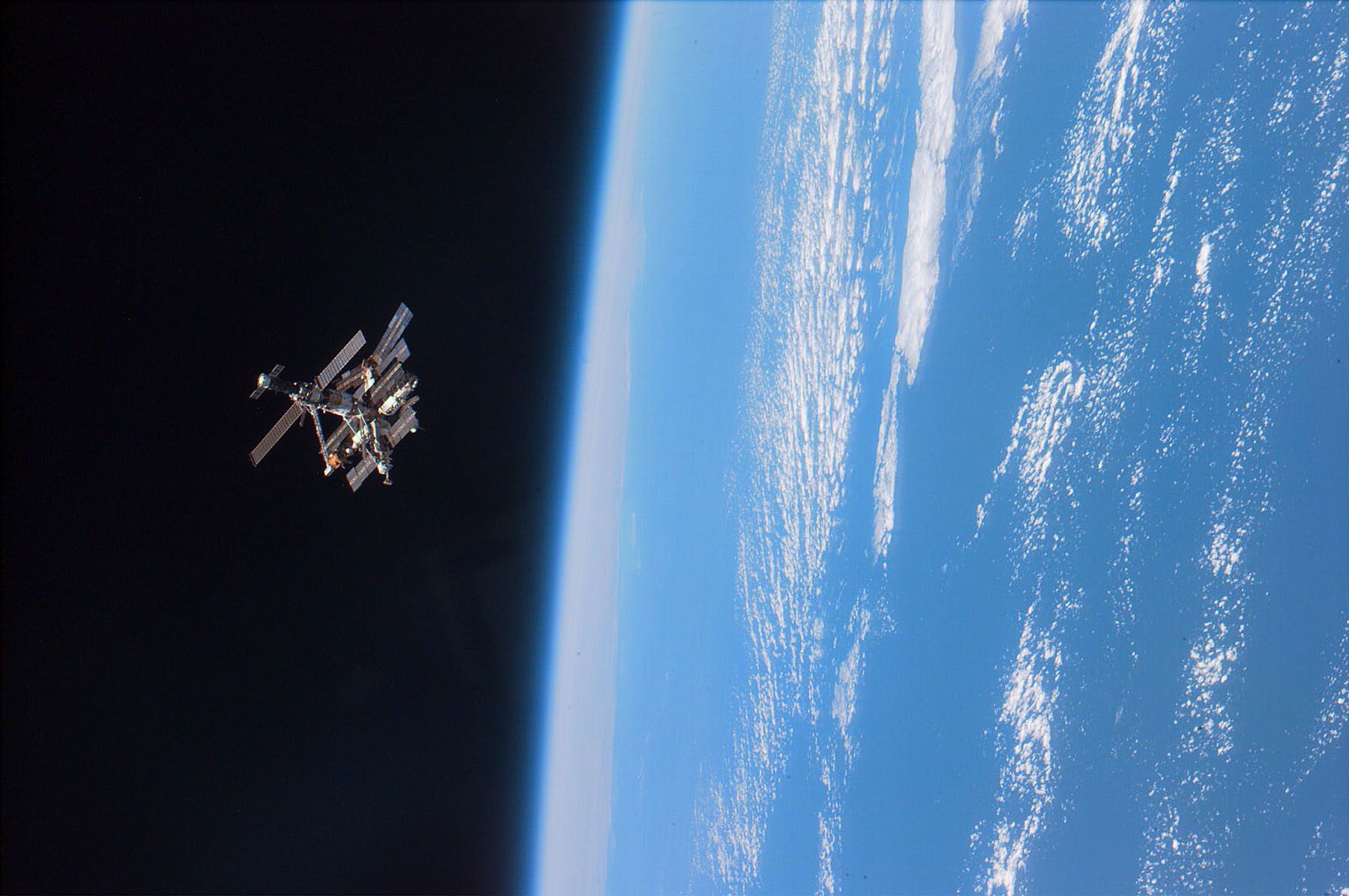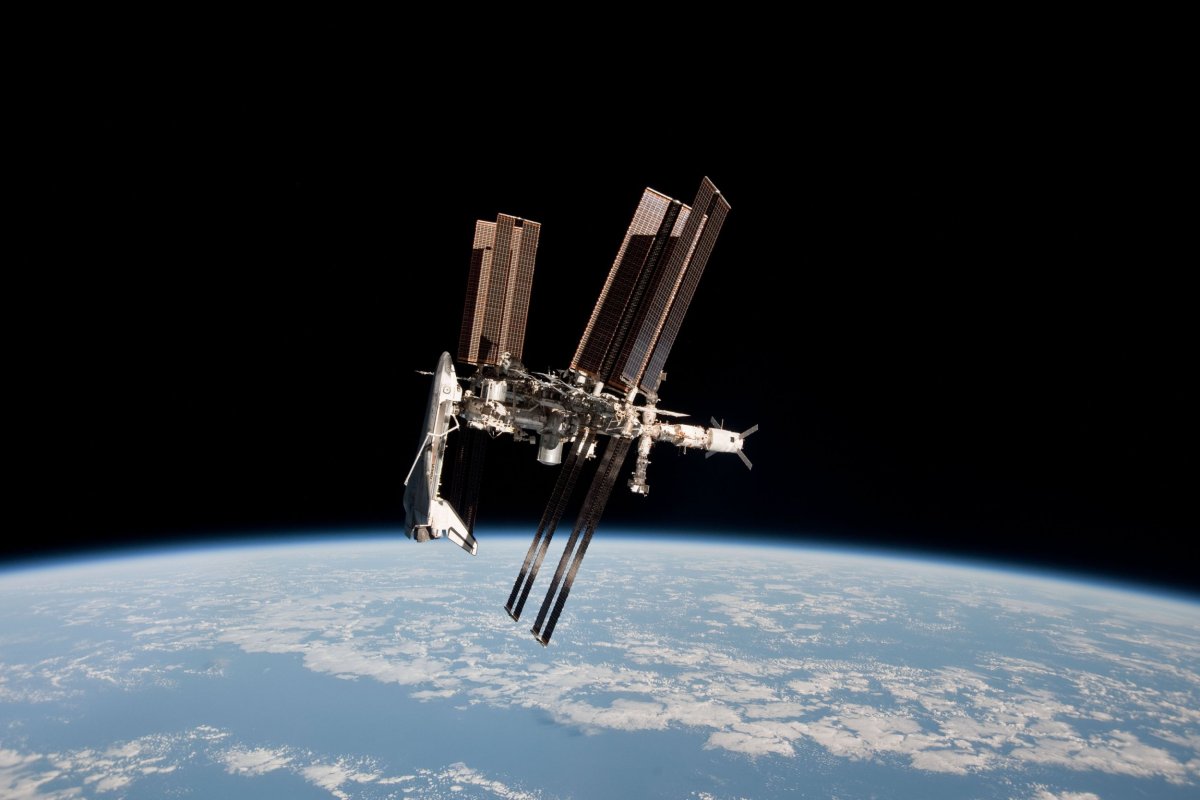
The prospect of war in space may seem far-fetched at this point and better suited for science-fiction films like Star Wars, but academics worldwide are already writing a guide to how countries should "use the force," so to speak, if such a conflict arises.
Experts from universities in Australia, Canada, the U.K., Russia and China are currently involved in a multiyear project on how to apply international law to military uses of outer space.
"What we're finding at the moment is that states are militarizing space; they're putting up assets that help or assist with the land, air and sea environments of armed conflict, and because of that, because of that reliance, what we're seeing is that states are also anticipating the possibility of armed conflict occurring in space," Dale Stephens, professor of law at the University of Adelaide in Australia, told Newsweek.
The U.S. military is preparing for space wars. These scientists are drafting laws to be ready for it. https://t.co/3ZDs0J8yeO pic.twitter.com/Q7pohCC4Nk
— Newsweek (@Newsweek) November 22, 2017
Stephens is among an international group of experts working on drafting the Manual on International Law Applicable to Military Uses of Outer Space (MILAMOS), which aims to provide guidelines for nations in the event of cosmic conflict. Ultimately, Stephens and his colleagues hope MILAMOS will reduce the probability of a celestial showdown. If such an event does occur, MILAMOS could help states avoid destroying the space infrastructure that is vital to so many aspects of the lives of people across the globe.
"Space-based assets have become integral to our daily lives; the internet, navigation, communications, banking, our modern life, relies on things such as GPS satellites, and because of our reliance on that, we would be very vulnerable if those capabilities were destroyed or removed," Stephens said.
Combat in space has the potential to be extraordinarily messy. "When you attack a military asset on land or in the air or at sea and you destroy that asset, it falls to the ground. When you attack a satellite in outer space, you suddenly create thousands of pieces of debris that whiz around the earth at [around 12,500 mph]," Stephens explained. That debris could pose a huge threat to important assets, like the International Space Station.
Space debris doesn't have to be large to cause problems, either. "An object up to 1 cm in size could disable an instrument or a critical flight system on a satellite," according to the European Space Agency. "Anything above 1 cm could penetrate the shields of the Station's crew modules, and anything larger than 10 cm could shatter a satellite or spacecraft into pieces."
At the moment, there are five global treaties that pertain to space. The most recent one, the 1967 Outer Space Treaty, was written half a century ago, and only one of its provisions deals directly with military activity in space. MILAMOS could help update and modernize the global conversation on such matters.
The academics behind this unofficial guidebook for war in space might seem as if they're addressing a topic that has no basis in reality, but "we must expect that war, of any kind, will extend into space in any future conflict, and we have to change the way we think and prepare for that eventuality," the U.S. Air Force Secretary said in June.

But how close is the world to a literal Star Wars?
"There are two big different issues in real space warfare versus that of Star Wars," Peter Singer, a senior fellow at New America Foundation and an expert on modern warfare, explained to Newsweek. "The concern is not 'far, far away,' but how different nations might target satellite systems orbiting close by to give them some kind of military advantage here on Earth. The second is real-world space conflict would be mostly robotic, for the sheer nature of how expensive and difficult it is to support people in space. So it's less Rey and more BB-8."
That said, Singer is worried that President Donald Trump isn't doing enough to prepare the U.S. for the challenges ahead. "The very moment we need international agreements, we have a Trump administration that doubts their value and has alienated the international community," according to Singer. This is compounded by the fact that "China is becoming more capable and assertive," while the U.S. government's influence on space issues is arguably the weakest it's been "since, well, humans went into space," he said.
Uncommon Knowledge
Newsweek is committed to challenging conventional wisdom and finding connections in the search for common ground.
Newsweek is committed to challenging conventional wisdom and finding connections in the search for common ground.
About the writer
To read how Newsweek uses AI as a newsroom tool, Click here.








